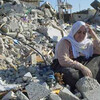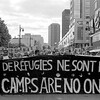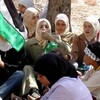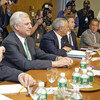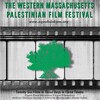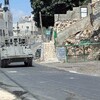
Weekly report on human rights violations
23 September 2004
This week Israeli forces killed 6 Palestinian civilians, including a child and a girl. The child was shot at her desk in school and died later from her wounds. Three of the victims were extra-judicially executed in Gaza. Israeli forces conducted a series of incursions into Palestinian areas in the West Bank and Gaza Strip. Israeli forces razed 77 donums of agricultural land in the Gaza Strip. Israeli forces raided homes and arrested dozens of Palestinian civilians. Israel continued shelling of residential areas and civilian facilities, wounding a number of Palestinian civilians. Israel continued construction of the Wall in the West Bank and continued to impose a total siege on the occupied Palestinian territories. Read more about Weekly report on human rights violations
